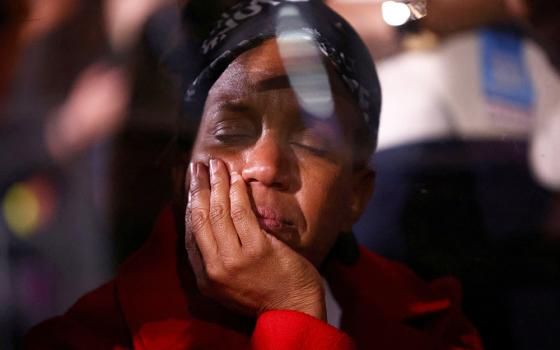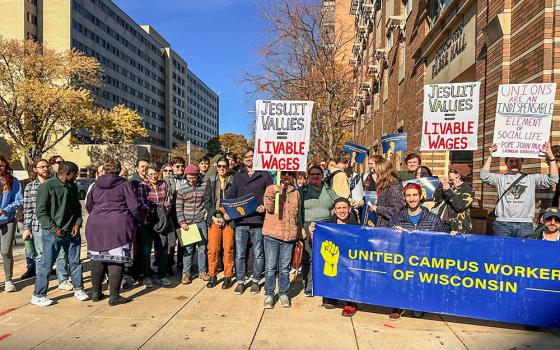For the next few weeks, most commentators on politics will be focusing on the primaries and caucuses, which is at it should be: In a democracy, nothing is more basic than votes. But, there are conversations beginning to bubble up on the sidelines that are instructive about the state of our politics in this very strange year.
One of the questions that has barely been looked at this year on the GOP side is: Who might be a suitable running mate for Donald Trump? It is not an easy question. Until 1992, choosing a VP nominee was usually about providing balance and uniting the party: Jack Kennedy, from Massachusetts, chose Lyndon Johnson, from Texas, lending geographic balance to the ticket and also selecting the second runner up for the nomination, thereby uniting the party. Nixon, from California, chose Agnew, from Maryland. Reagan, the conservative, chose the moderate George H.W. Bush. The young Obama chose the older Biden.
In 1992, Bill Clinton did something different. In selecting Al Gore, a senator from the neighboring state of Tennessee with a similar ideological compass, Clinton chose not to use his Veep choice to balance to the ticket but to reinforce his “New Democrat” image. Could Trump, whose entire campaign has been premised on the fact that politicians have been complicit in making America not great anymore, choose a fellow businessperson? Who would that be? Carly Fiorina?
Or, will Trump see the need to get someone with political, and especially foreign policy, bona fides on the ticket? Again, the question is whom would he pick? Actually, there are two questions. Whom would Trump and, more complicatedly, who would be willing to undertake the task? It is clear that the establishment is hostile to Trump’s hostile takeover of their party, so finding someone with credibility among the establishment is going to be hard. Usually, the Veep slot is bestowed on someone who aspires to the top job eventually, but being Trump’s Veep could be a kamikaze mission and a career ender. Why would anyone risk their own career on such a venture?
On the Democratic side, at last night’s debate, a more interesting, and influential, position was discussed: Secretary of the Treasury. Most of the recent holders of that high office in Democratic administrations have had ties to Citigroup, not to the
When you look at the delegate math, it is almost impossible to see Sanders overtaking Clinton’s delegate lead. But, Sanders knows that every day he stays in the race, every additional delegate he collects, will pull the party and Clinton more towards his populist economic critique. (I am uncertain why Clinton has not been better at articulating her own populist economic critique, which she did very well in the later stages of her 2008 campaign against then-Sen. Obama.) The more Clinton, as candidate and as president, needs to be mindful of the wishes of the Democratic base, the more likely we will see her select an economic team that is less likely to accept as a given the current workings of the financial markets.
And, to whom will Clinton look in choosing a running mate? Will she, like her husband, reinforce her own image by selecting a hyper-competent woman? She could energize the base by selecting Sen. Warren, to be sure, although I suspect Warren understands that being in the Senate gives her greater freedom of action and movement. Secretary of Housing and Urban Development Julian Castro, former mayor of San Antonio, has gotten a lot of attention, but Secretary of HUD is not usually the kind of resume-booster for the vice presidency one expects. Clinton has wider experience of life in the White House than almost all previous aspirants, and so she also might insist on choosing someone with whom she feels very comfortable, like Virginia Sen, and former Gov. Tim Kaine.
On the GOP side, it is hard to imagine what a Trump cabinet would look like. Once he has secured the nomination, however, the press will start asking questions about who is advising him, especially on foreign and defense policy, areas about which he knows next to nothing. Remember the debate when he clearly did not understand the question about the nuclear triad? Is there any person with the gravitas needed to serve as, say, National Security Advisor, who would actually look forward to the prospect of having to brief President Trump each morning?
These are the kinds of questions that will begin to dominate the discussion as Trump’s sews up the nomination as early as next Tuesday and as the delegate math of the Democratic side increasingly shows that Sanders has no real path to the nomination. And, these questions are actually more important for actual governance than much of the chatter about the horserace that has so far consumed the media. Stay tuned.




